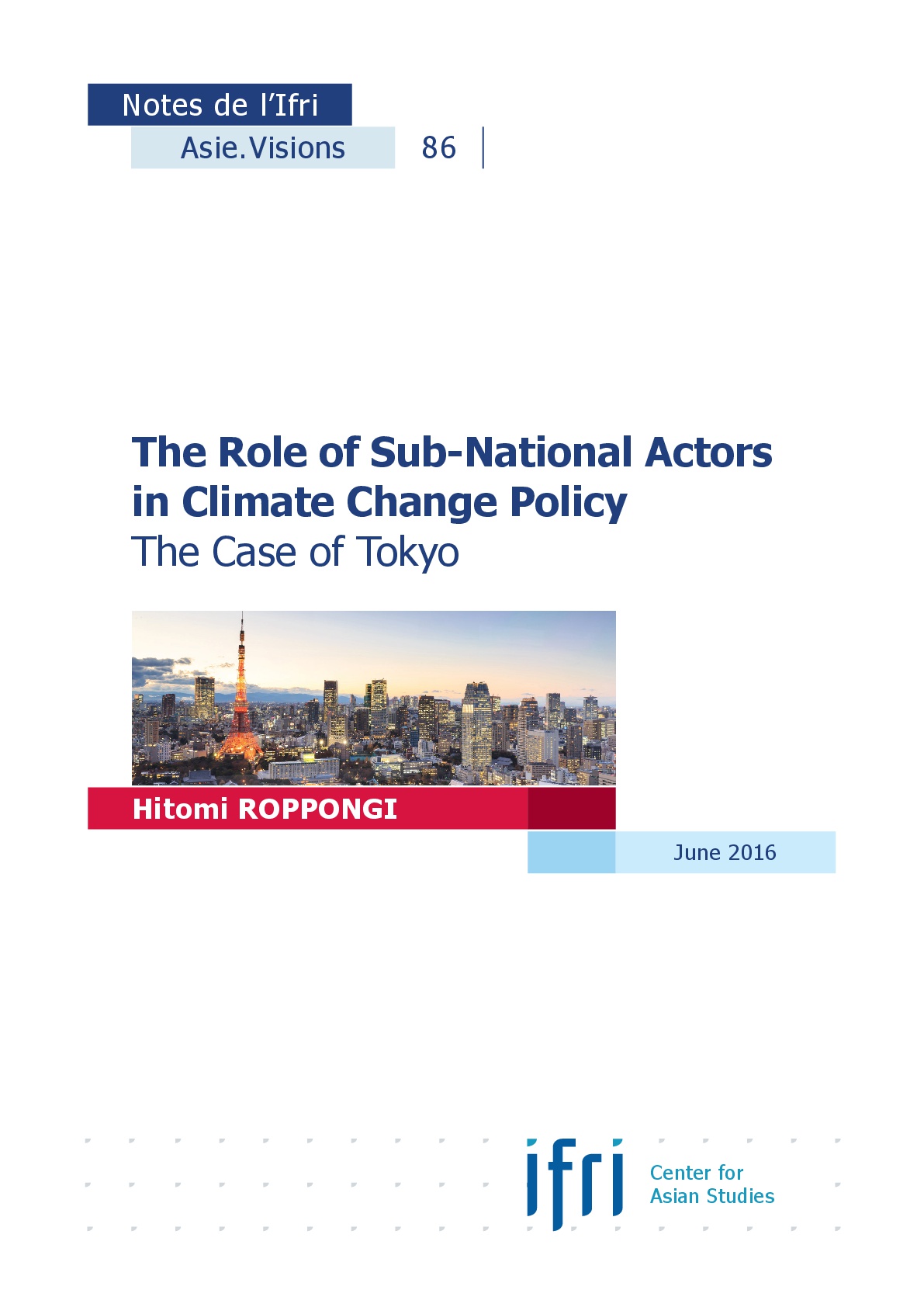The Role of Sub-National Actors in Climate Change Policy. The Case of Tokyo

Tokyo is known as a pioneer throughout the history of Japan’s environmental policy, often being compared to California in the United States or Paris in France. Following the global trend of growing local initiatives tackling climate change, Tokyo introduced a cap-and-trade scheme in 2010 ahead of a national implementation.

The Tokyo Cap-and-Trade Program is the first of its kind that regulates CO2 emissions from all business sectors, where energy consumers are defined in terms of the business establishments they own. Tokyo’s initiative is largely seen as a reaction to the modest national commitment, following the tradition of center-local rivalry.
This study first explains the centre-local relationship in the history of Japan’s environmental governance. It then analyzes the development of the Tokyo’s flagship climate policy and its implications for national and other sub-national governments in Japan. The tactics used by the Tokyo Metropolitan Government to overcome business opposition typically seen in the introduction of GHG control, and future policy challenges are also discussed. The study finds that Tokyo’s policy encourages behavioral changes and technological improvement in the business sector, going a step beyond the existing culture of energy conservation in Japan. An emission trading scheme is often associated with the collapse of carbon markets and the “money game”, rather than a practical tool to reduce CO2 emissions, but the Tokyo Cap-and-Trade Program has demonstrated a policy impact that recasts such an image. A known case of policy diffusion to Saitama prefecture, an immediate neighbor of Tokyo with the fifth largest population in Japan, is also discussed to elaborate on the potential domestic diffusion of the policy.
Download the full analysis
This page contains only a summary of our work. If you would like to have access to all the information from our research on the subject, you can download the full version in PDF format.
The Role of Sub-National Actors in Climate Change Policy. The Case of Tokyo
Related centers and programs
Discover our other research centers and programsFind out more
Discover all our analyses
RAMSES 2024. A World to Be Remade
For its 42nd edition, RAMSES 2024 identifies three major challenges for 2024.
France and the Philippines should anchor their maritime partnership
With shared interests in promoting international law and sustainable development, France and the Philippines should strengthen their maritime cooperation in the Indo-Pacific. Through bilateral agreements, expanded joint exercises and the exchange of best practices, both nations can enhance maritime domain awareness, counter security threats and develop blue economy initiatives. This deeper collaboration would reinforce stability and environmental stewardship across the region.

The China-led AIIB, a geopolitical tool?
The establishment of the Asian Infrastructure Investment Bank (AIIB) in 2016, on a Chinese initiative, constituted an attempt to bridge the gap in infrastructure financing in Asia. However, it was also perceived in the West as a potential vehicle for China’s geostrategic agendas, fueling the suspicion that the institution might compete rather than align with existing multilateral development banks (MDBs) and impose its own standards.
Jammu and Kashmir in the Aftermath of August 2019
The abrogation of Article 370, which granted special status to the state of Jammu and Kashmir (J&K), has been on the agenda of the Bharatiya Janata Party (BJP) for many decades.






